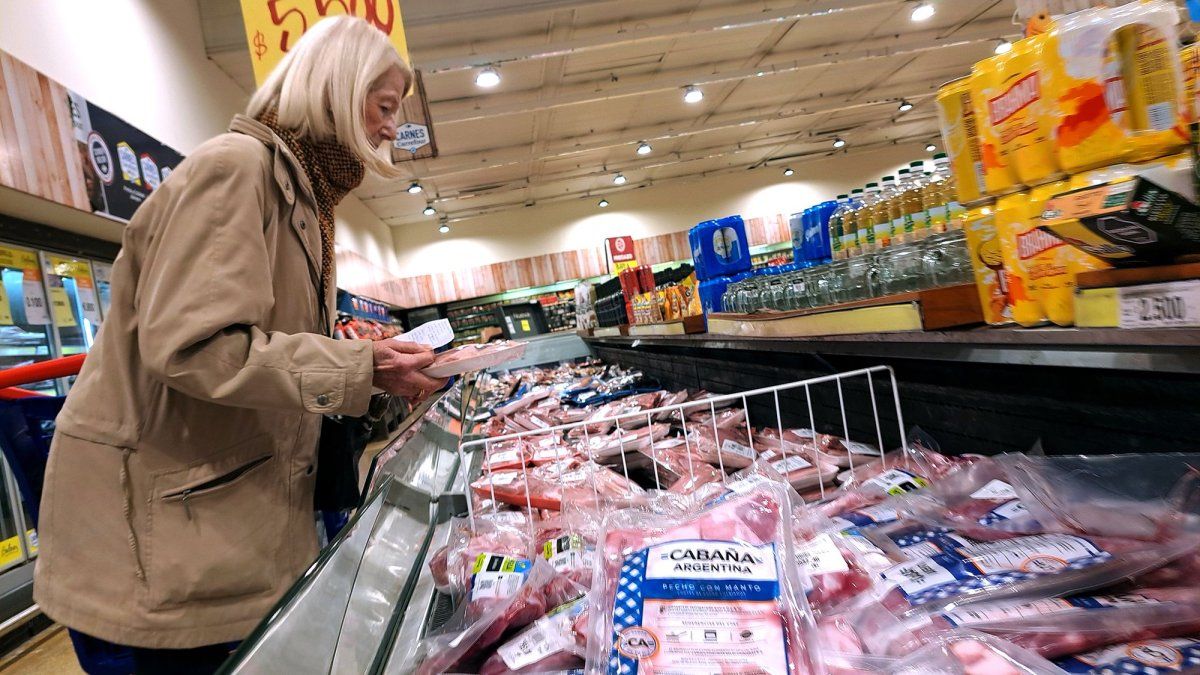He consumption in supermarkets marked a drop of 18% during the first eleven days of August, compared to the same period in 2023. For supermarket owners, this year “is already lost”, but they are betting that the last quarter will mark an upturn thanks to the parties and recovery of the salary.
Sales in large establishments are not part of the process timid recovery that some sectors are predicting. Corporate strategies to generate a sustained and widespread recovery have not yet been translated into final figures.
In this sense, sources in the sector assure that they not only apply interest-free installments as a traditional payment method at the end of each month, but also the Virtual wallets play their role by offering discountsbut “nothing is very successful,” they tell this medium.
In addition to the benefits they offer, supermarket owners highlight that the lists provided by their suppliers “They are far away” of the 3.2% which marked the inflation of the Food and Non-alcoholic Beverages category. “The prices They run around 2%but even then we do not see any improvement,” they admit in the sector.
Last June, the slight increase in the consumption of some basic foods It allowed more than one businessman to get excitedbut the July numbers showed that this was a temporary joy.
Consumption: do the August data show a worse decline than in July?
According to the consultancy Scentiadirected by Osvaldo del Rioin July the drop was 16.1% in supermarkets and independent self-service stores. The cumulative drop was 9.6%.
In the breakdown, the latest report highlights the 25.5% cut in “Impulsives” (sweets, alfajores and desserts). It is followed by ““Alcoholic Beverages” fell by 25.2% and “Non-Alcoholic” by 23.7%. Behind is the heading “Hygiene and Cosmetics”, with a drop of 20.9%, “Breakfast and Snack”, with a decrease of 12.6% and “Food”, with a decline of 9.6%.
As a preview, the survey to which was able to access Scope, and which also responds to Scentia – it measures the 100% of hypermarkets and 17,500 self-service stores– ensures that the fall In the first two weeks of August it was 18% year-on-year.
Supermarkets-Inflation-Consumption-Prices-Purchase-Meat
Mariano Fuchila
Household appliances and alcoholic beverages, the most affected non-essential sectors
However, it is not only the sales of basic basket products that show significant declines, Essential items are those that suffered the worst effect of wage liquefaction. A fact that highlights the sector has to do with the sale of household appliances and items, which registers losses of more than 50%.
The decline of this segment is not only worrying in terms of loss of profitability-the sector is clear that recovering will be at the cost of obtaining “very, very ugly” profit margins- but also why not sell, for example, a washing machine, could impact the price of rice.
Why? During a tour that Scope carried out by a Buenos Aires hypermarket, the store manager showed that the category household appliances and household items occupies 20% of the surface of the establishment. He then picked up a package of 500 grams rice to $1,500 and explained, with concern: “In order to sustain the price of this package of rice, I have to sell part of all this.”.
Another fact that draws the attention of supermarket owners It is the abrupt fall in beer saleseven superior to that of wine. “We ended 25% lower than the first half of the previous year. June and July saw minor declines, but we are still down, despite the promotions and strong price campaigns“, says a representative source in the sector.
Summer operation: businessmen seek to recover part of what they lost in December
Despite the adversities, supermarkets are looking to summer to rebuild part of what they consider a “lost year” compared to 2023. Three reasons: Christmas, New Year’s Eve and salary recovery.
Regarding the latter, according to the latest report from the consulting firm South Americanduring June the main indicators of wages private showed a growth above 4.6% inflation, but They remain at very low levels and have not recovered from pre-pandemic levels..
At the same time, the formal private salaried employment continues to fall: recorded nine consecutive months of decline in May and accumulated a 2% drop in relation to August 2023, of more than 164 thousand private salaried jobs in absolute terms. If the decline in employment continues, The collective bargaining negotiations could be further affectedfurther deteriorating purchasing power.
Meanwhile, The focus of supermarkets is on promotions with bank cards and discounts with virtual wallets, such as Cuenta DNI or Mercado Pago. Precisely, it is not free: “When a basic category goes up, it is because a lot of money is put into commercial actions to support prices and make promotions and offers, but with very low profitabilityor in some cases practically zero,” a source in the sector relativizes.
Source: Ambito




